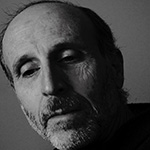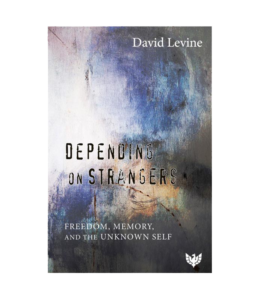
David P. Levine is emeritus professor in the Josef Korbel School of International Studies at the University of Denver. He holds a PhD in economics from Yale University and a Certificate in Psychoanalytic Scholarship from the Colorado Center for Psychoanalytic Studies. He has published extensively in the fields of economics, political economy, and psychoanalysis. In the field of psychoanalysis, he has published books on work, creativity, ethics, and politics, including (with Matthew H. Bowker) The Destroyed World and the Guilty Self: A Psychoanalytic Study of Culture and Politics. He currently lives in Santa Fe, New Mexico.
Here he addresses the need for trust in strangers and what prompted his book on the subject: Depending on Strangers: Freedom, Memory and the Unknown Self.
The pandemic will come to an end if and when enough people trust a stranger with a syringe. A recent estimate has the percent of the population in the US that would need to get vaccinated for the coronavirus to achieve “herd immunity” at somewhere between 70 and 90 percent (Allen). Yet, many people are wary of the vaccine, perhaps as many as 25–30% percent of the adult population by one estimate (Hamel). While we can identify several reasons for vaccine resistance, distrust is clearly an important factor.
On this, consider the following comments from people who do not plan to get vaccinated. One person interviewed tells us that she “would like to see more information and documentation of side effects.” Another reports that he “won’t be taking it in its first few years” because it has not been fully tested. Another asks: “Where is the info of what’s in the COVID vaccine?” One respondent refuses to allow authority figures to think for him. One woman tells us that “the government has never really been in favor of wanting people to be healthy. It’s all about money and big pharma.” And one respondent doubts the “political propaganda that drives medical information and intends to “let others be the test subjects.”
 Some of those resistant to vaccination appeal to concerns about evidence for its efficacy and safety. In light of this, it might be tempting to think that what is needed to achieve a higher level of compliance is either more evidence or a better distribution of the evidence we already have in order to build trust. But, if the distrust is distrust of the evidence and its source, little is likely to be accomplished by providing more evidence.
Some of those resistant to vaccination appeal to concerns about evidence for its efficacy and safety. In light of this, it might be tempting to think that what is needed to achieve a higher level of compliance is either more evidence or a better distribution of the evidence we already have in order to build trust. But, if the distrust is distrust of the evidence and its source, little is likely to be accomplished by providing more evidence.
In thinking about trust and its absence, we are naturally inclined to begin with attributes of the object in which we either do or do not invest our trust. Trust, then, is a result of what we know about that object. But, in this case, the individuals who are reticent to be vaccinated know little about the object of their distrust because the people they will have to trust, including those with the syringe in their hands, are strangers.
An especially important part of the challenge posed by the necessity of living in a world of strangers is that, in small and large ways, we find ourselves in the care of strangers; we depend on people we do not know to assure our wellbeing. We are in the care of strangers when we visit the grocery store to acquire the food we need; we are in the care of strangers when we are ill and seek medical attention; and we are in the care of strangers when we cannot manage for ourselves yet have no family members available to look after us. But for many people, strangers provoke anxiety, which impedes their ability to make use of them.
I wrote my new book out of a long-standing concern with how we live in a world of strangers, a concern that goes back the time that I spent early in my career working in economics and political economy. In the book, I explore the emotional burden associated with dependence on strangers and also the opportunity doing so affords. I explore the problems that arise for the individual and for society by the prevalence of stranger anxiety. I spend time thinking about strangers as a repository for the unknown self and about the importance of making a connection with the unknown self for the individual who seeks to make living an expression of internal freedom. My hope is that, by better understanding the way we construct our emotional understanding of strangers, we might arrive at a better understanding of the possibilities embedded in and the limitations placed on social institutions and therefore on the possible and likely trajectory of social change.
David P. Levine
References
Allen, M. (2020, December 25) NYT: Fauci acknowledges moving goalposts on herd immunity from COVID-19. Axios. Retrieved 12/26/2020.
Hamel, L. Kirzinger, A., Cailey M., and Brodie, M. (2020). KFF COVID-19 Vaccine Monitor: December 2020. Retrieved 12/22/2020.
Wyland, S. (2020, December 25) Some New Mexicans skeptical about coronavirus vaccine. Santa Fe New Mexican. Retrieved 12/27/2020.

